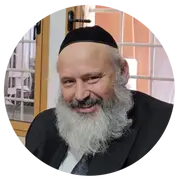ORDEM BENEFICENTE DE ASSISTÊNCIA SOCIAL
DIASPORA YESHIVA UNIVERSITY FOUNDATION

A Diaspora YeshivaToras Yeshiva Toras Yisrael no Monte Sião em Jerusalém Capital de Israel, www.diasporayeshiva.org dos Estados Unidos da América do Norte e a Ordem Beneficente de Assistência Social (OBAS) são organizações reconhecidas por todas as comunidades Judaicas, Prestamos honra e reconhecimento aos nossos Santos Tzadikim e ao nosso Rosh Yeshiva Rebbe Yitzchak Goldstein. Nosso representante na América Latina e do Sul nosso Rabino Faivish Ben Aharon Hacohen está trabalhando incansavelmente para ajudar no crescimento e expansão de nossas obras de caridades e espirituais, todos os que nos solicitam conviver conosco em nossa família. Reconhecemos Sua Santidade o Papa Francisco e temos todos os nossos dogmas reconhecidos. Em nossas casas falamos Ingles, Yisdish, oramos e usamos em nossas rezas o Hebraico, e o idioma falado no País em que estamos.
Sejam todos bem vindos!

























